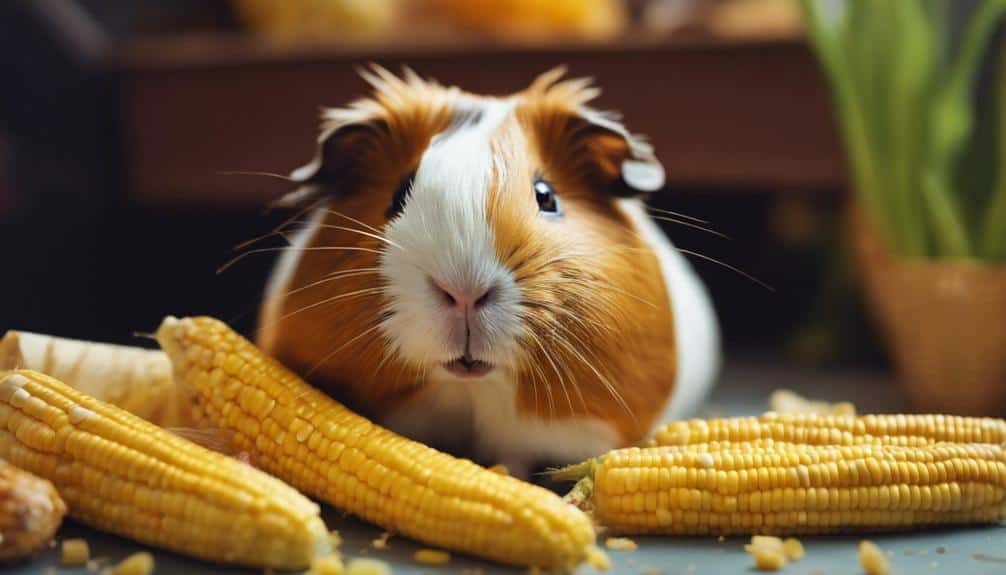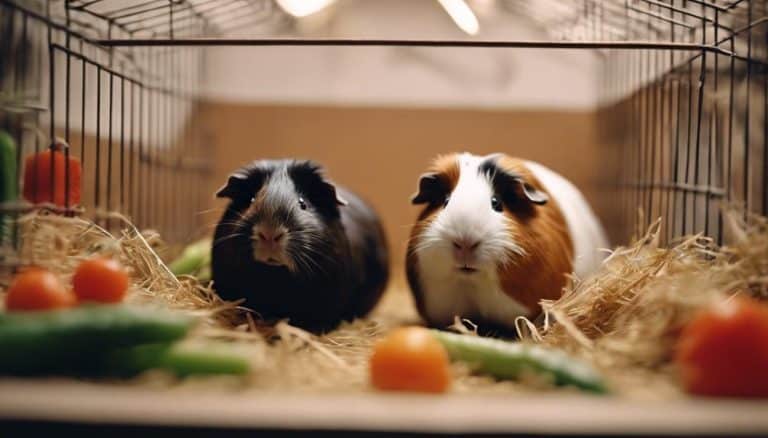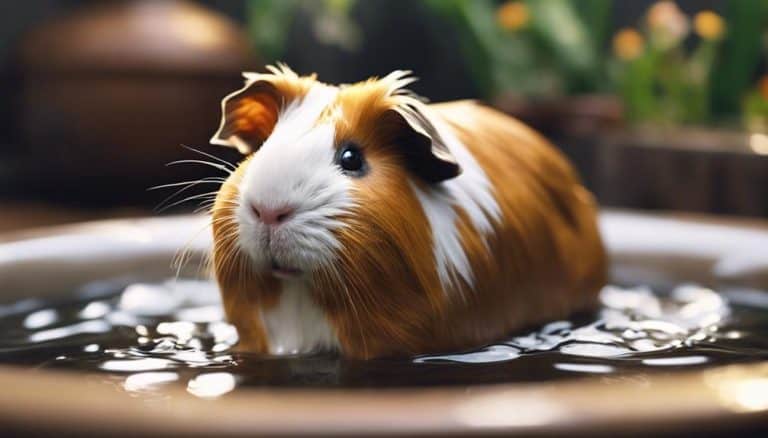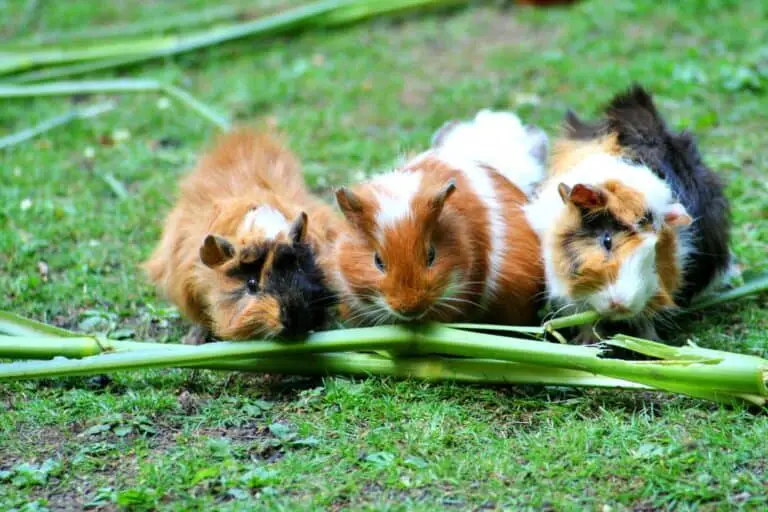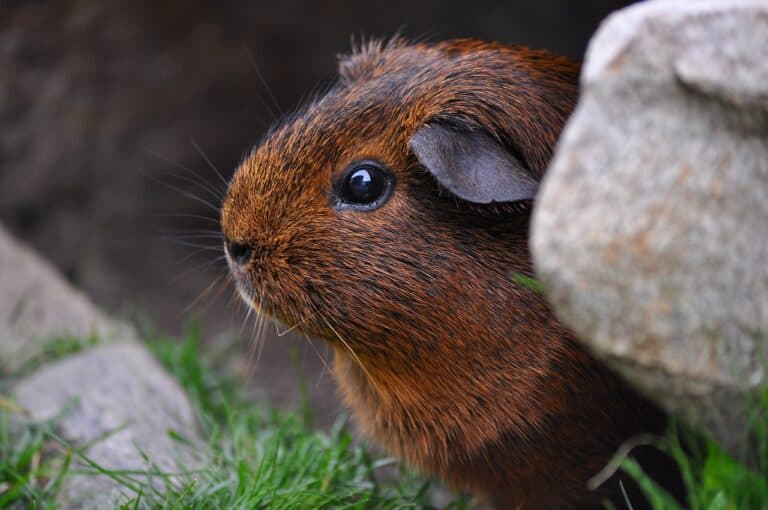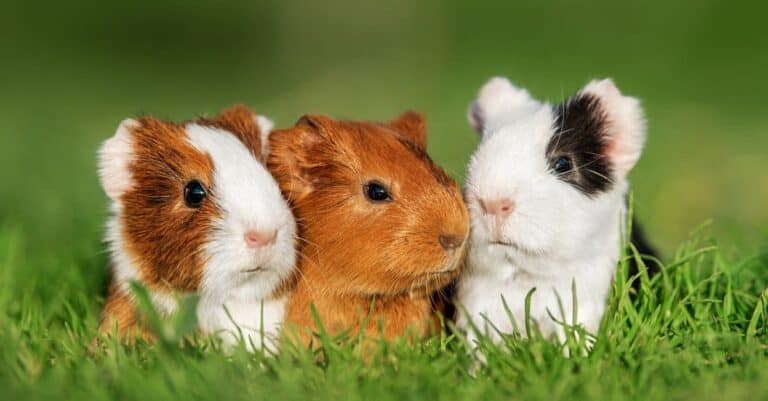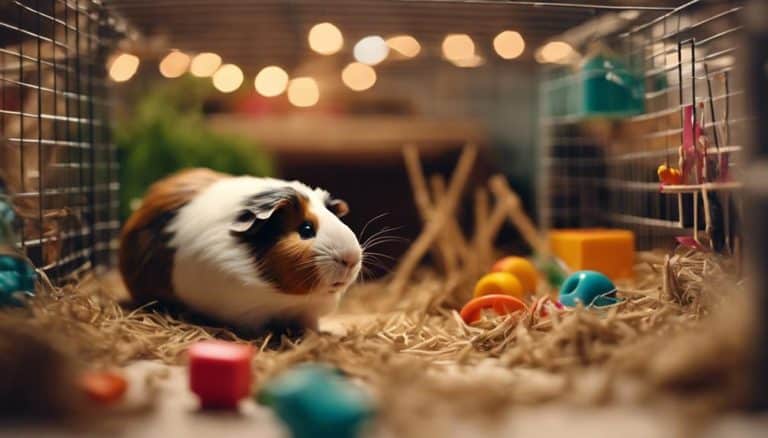How Guinea Pigs Can Eat Corn Safely
When it comes to feeding our beloved guinea pigs, considering the nuances of their diet is crucial. Corn, a common treat, can be a source of delight for our furry friends. However, ensuring their safety while indulging in this snack requires attention to detail.
Let’s explore the guidelines for offering corn to guinea pigs, taking into account their unique dietary needs and potential risks associated with this seemingly innocent treat.
Benefits of Corn for Guinea Pigs
While not a primary source of nutrients, corn can provide several benefits for guinea pigs when included as part of a balanced diet. Guinea pigs eat corn in small amounts for its nutritional value.
Corn contains Vitamin C, which is essential for the immune system health of guinea pigs. Additionally, corn silk aids in digestion due to its fiber content, offering a source of roughage that can benefit the digestive system of these small pets.
Despite being low in calcium, corn provides moderate levels of phosphorus, which are important for maintaining bone health in guinea pigs. When fed in moderation, corn can be a part of a varied diet for guinea pigs, adding some diversity to their nutritional intake.
It’s important to remember that corn shouldn’t be the main component of their diet but rather a safe occasional treat to complement their primary sources of nutrition.
Risks of Feeding Corn to Guinea Pigs
Feeding corn to guinea pigs poses potential risks that should be carefully considered to guarantee the safety and well-being of these small pets. Corn husks and silks can present a choking hazard if not cut into small, manageable pieces. Guinea pigs, while enjoying corn, may encounter difficulties with husks getting stuck in their teeth, leading to discomfort.
To mitigate these risks, it’s important to monitor guinea pigs closely while they eat corn. By observing their behavior and making sure they don’t struggle with the husks, potential choking hazards can be prevented. Offering smaller portions of corn can also benefit guinea pigs that have challenges with certain forms of the vegetable.
Additionally, maintaining good oral health in guinea pigs, such as regular teeth cleaning and monitoring, is critical to prevent issues that may arise from eating corn. Keeping a watchful eye on these aspects can help make sure that guinea pigs can safely enjoy corn as part of their diet.
Moderation in Corn Consumption
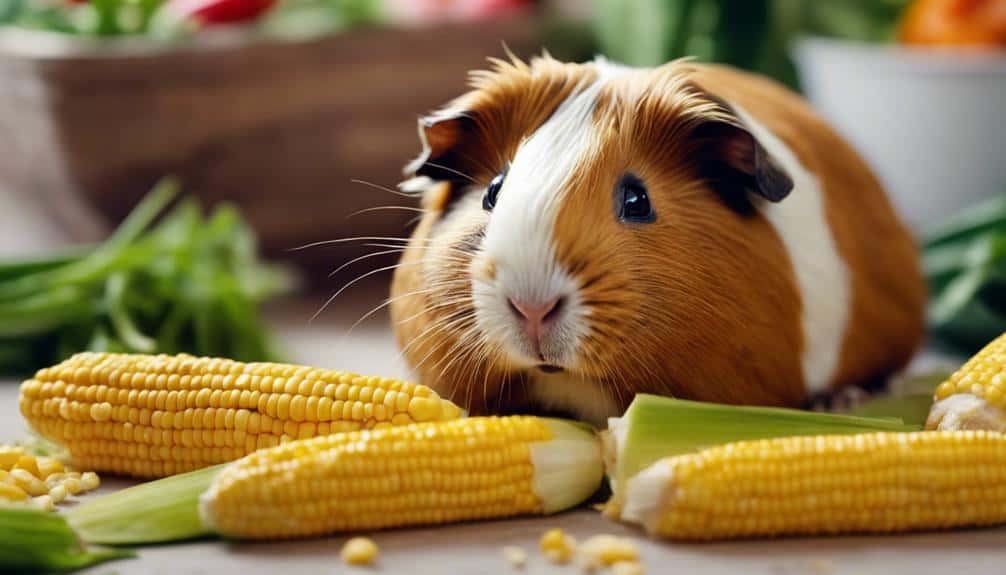
Consumption of corn by guinea pigs should be carefully moderated due to its high sugar content and potential digestive implications. While guinea pigs enjoy the taste of corn, feeding it in excess can lead to health issues. Corn should be considered a treat rather than a staple in their diet to prevent obesity and nutritional imbalances. Monitoring the amount of corn given to guinea pigs is important for their well-being.
It’s essential to remember that corn husks aren’t suitable for guinea pigs to eat, as they’re difficult to digest and can cause blockages in their digestive system. When offering corn to guinea pigs, it’s crucial to remove the husks and provide only the kernels.
Tips for Introducing Corn to Diet
When incorporating corn into your guinea pig’s diet, it’s important to proceed gradually to monitor for any adverse reactions. Guinea pigs can eat corn, but it’s essential to introduce it in a controlled manner. Here are some tips for safely incorporating corn into your guinea pig’s diet:
- Start with small portions: Begin by offering a tiny amount of corn to see how your guinea pig reacts. This helps prevent any digestive issues that may arise from a sudden dietary change.
- Consult with a veterinarian: Before adding corn to your guinea pig’s diet, it’s wise to seek advice from a veterinarian. They can provide guidance on the appropriate quantity and frequency of corn consumption.
- Ensure it’s fresh and clean: Always serve fresh and clean corn to your guinea pigs. Avoid offering corn that’s stale or contaminated, as it could lead to health issues.
- Watch for signs of choking: Keep a close eye on your guinea pigs while they eat corn. Look out for any signs of choking or discomfort to guarantee their safety.
Ensuring Safe Corn Feeding Practices
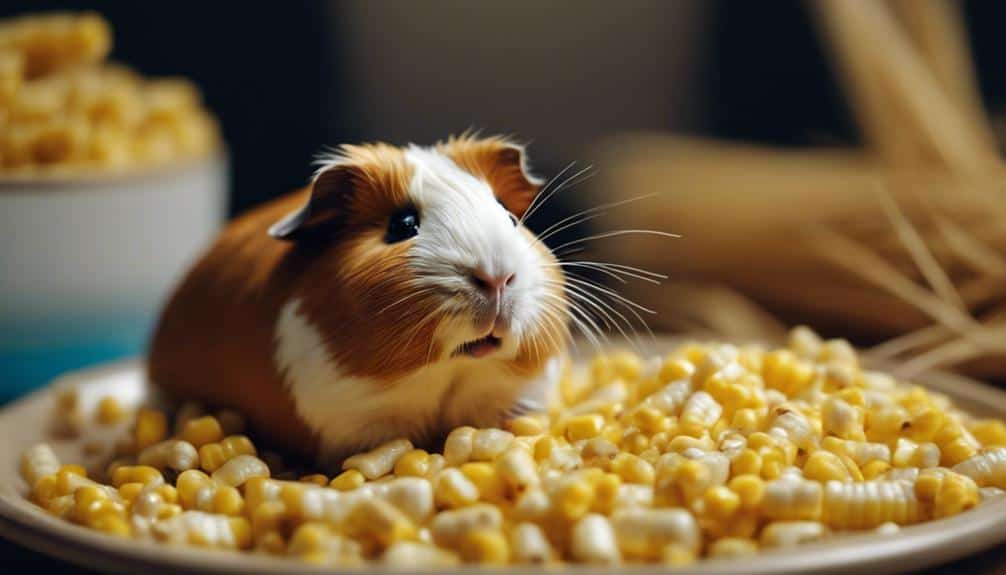
To guarantee the safety of feeding corn to guinea pigs, vigilant monitoring during their consumption is essential in preventing potential choking hazards or discomfort. Offering smaller, more manageable portions of corn can help guinea pigs that may struggle with certain forms, such as inner husks, which can pose a choking risk. It is important to make sure access to fresh water at all times, especially when feeding treats like corn, to aid in digestion and prevent any blockages. Regularly cleaning guinea pigs’ teeth and monitoring their oral health is vital to prevent issues related to eating corn, such as dental problems. Consulting a veterinarian for guidance on feeding corn can ensure proper nutrition and care for guinea pigs. When feeding corn, opt for fresh, baby corn, avoiding tinned or frozen varieties, and provide a good amount as a treat in moderation.
| Safe Corn Feeding Practices | |
|---|---|
| Monitor guinea pigs while eating corn | Offer smaller portions to prevent choking |
| Make sure access to fresh water | Regularly clean teeth and monitor oral health |
| Consult a vet for guidance on feeding corn | Choose fresh baby corn in moderation |
Conclusion
To summarize, guinea pigs can enjoy corn cautiously. Remember to monitor their munching for maximum safety. Moderation is key to prevent sugar spikes.
Introduce this tasty treat slowly, observing their reactions closely. Consulting a vet can provide valuable guidance for a balanced diet. Keep your furry friends happy and healthy by following these simple steps for safe corn consumption.

